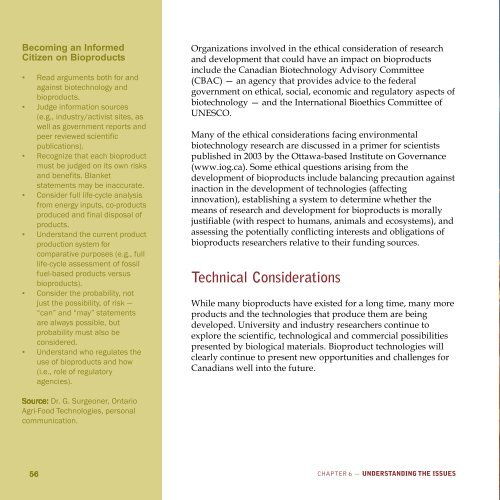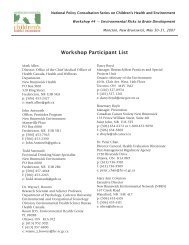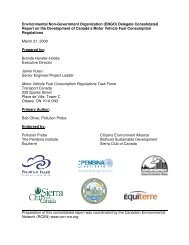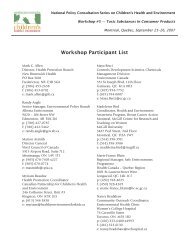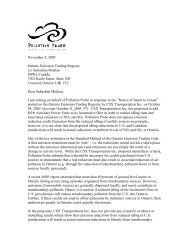Primer on Bioproducts - BIOCAP Canada
Primer on Bioproducts - BIOCAP Canada
Primer on Bioproducts - BIOCAP Canada
Create successful ePaper yourself
Turn your PDF publications into a flip-book with our unique Google optimized e-Paper software.
Becoming an InformedCitizen <strong>on</strong> <strong>Bioproducts</strong>• Read arguments both for andagainst biotechnology andbioproducts.• Judge informati<strong>on</strong> sources(e.g., industry/activist sites, aswell as government reports andpeer reviewed scientificpublicati<strong>on</strong>s).• Recognize that each bioproductmust be judged <strong>on</strong> its own risksand benefits. Blanketstatements may be inaccurate.• C<strong>on</strong>sider full life-cycle analysisfrom energy inputs, co-productsproduced and final disposal ofproducts.• Understand the current productproducti<strong>on</strong> system forcomparative purposes (e.g., fulllife-cycle assessment of fossilfuel-based products versusbioproducts).• C<strong>on</strong>sider the probability, notjust the possibility, of risk —“can” and “may” statementsare always possible, butprobability must also bec<strong>on</strong>sidered.• Understand who regulates theuse of bioproducts and how(i.e., role of regulatoryagencies).Organizati<strong>on</strong>s involved in the ethical c<strong>on</strong>siderati<strong>on</strong> of researchand development that could have an impact <strong>on</strong> bioproductsinclude the Canadian Biotechnology Advisory Committee(CBAC) — an agency that provides advice to the federalgovernment <strong>on</strong> ethical, social, ec<strong>on</strong>omic and regulatory aspects ofbiotechnology — and the Internati<strong>on</strong>al Bioethics Committee ofUNESCO.Many of the ethical c<strong>on</strong>siderati<strong>on</strong>s facing envir<strong>on</strong>mentalbiotechnology research are discussed in a primer for scientistspublished in 2003 by the Ottawa-based Institute <strong>on</strong> Governance(www.iog.ca). Some ethical questi<strong>on</strong>s arising from thedevelopment of bioproducts include balancing precauti<strong>on</strong> againstinacti<strong>on</strong> in the development of technologies (affectinginnovati<strong>on</strong>), establishing a system to determine whether themeans of research and development for bioproducts is morallyjustifiable (with respect to humans, animals and ecosystems), andassessing the potentially c<strong>on</strong>flicting interests and obligati<strong>on</strong>s ofbioproducts researchers relative to their funding sources.Technical C<strong>on</strong>siderati<strong>on</strong>sWhile many bioproducts have existed for a l<strong>on</strong>g time, many moreproducts and the technologies that produce them are beingdeveloped. University and industry researchers c<strong>on</strong>tinue toexplore the scientific, technological and commercial possibilitiespresented by biological materials. Bioproduct technologies willclearly c<strong>on</strong>tinue to present new opportunities and challenges forCanadians well into the future.Source:Dr. G. Surge<strong>on</strong>er, OntarioAgri-Food Technologies, pers<strong>on</strong>alcommunicati<strong>on</strong>.56 CHAPTER 6 — UNDERSTANDING THE ISSUES


